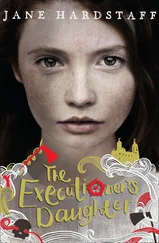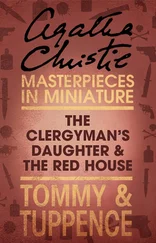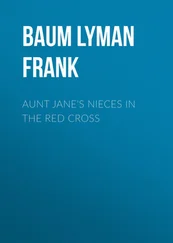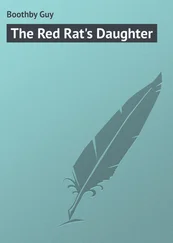My children knew Brajesh, I hear myself telling Rajesh/Rog, before correcting my mistake. My first two children, I mean. In the Soviet Union.
As it happens, I have an old picture of Josef in my purse (the one of him holding his Soviet passport), and this I pull out now to show the Indian boy in the English pub that I am no mere lunatic woman or liar, saying, This is my eldest. My Josef. A doctor in Moscow, you see? Yasha—I mean Jacob—has never met his brother, but one day I hope he will. And his dear sister, Katya, too.
And poor little Rajesh/Rog with his brown skin and serious brown eyes, probably already dreaming of the long Christmas break when his parents or someone, anyone, might come and fetch him from this Orwellian Quaker nightmare, Rajesh nods—what else can he do?—and continues to stare at my son’s photograph until finally I slip it back into my purse, releasing him.
India, I announce to Rajesh, and perhaps I sound a bit angry now, I can no longer tell, is where I changed my life forever.
Can we go? demands Yasha with furious embarrassment, looking not at me but out the window to the gray English street.
Of course, I agree. Forgive me for remembering.
I pay the bill, counting out the pounds and shillings. In my head I still do math in Russian.
3 November
I miss Peter. He is the one, the only one, who knows all the characters of my story and takes them to heart. Who might fight for and against them as I would, as real people instead of tilted windmills. Times, I confess, often late in the evening with Yasha away at school, when some nagging, pitiful one-sided conversation insinuates itself into my thoughts and remains there like a thread crying out to be pulled—and before I know it I find myself with phone in hand, ready to call out to the only man in the world who might tell me once again, selflessly and with absolute conviction, not to yank like a frightened child on the very thing that will be my undoing.
But I don’t call. Because each time there comes at the last second a flash of lightning in my storming brain that is a picture of him sitting in his lawyer’s office calmly offering his paid counsel over the phone to someone else, another client who is not me, and Beverly just outside the door eavesdropping on every word. And each time the recognition of this other, formal existence of his hurls me first into panic—if he is hiding in there behind his cold professional walls, every client equal and the same, then where and who am I?—and finally into anger—how dare he treat me like this?—until I slam down the phone without calling.
Which leaves me alone and without him. And so it has been for a long time now.
Too often like this: two dangerous seas colliding in my head.
I don’t know why.
22 November
Yesterday there was a screening of Oblomov (with subtitles) organized by the Cambridge University Russian Society. I was not specially invited—almost no one in this city knows my real identity—but rather attended as the guest of my downstairs neighbor, Mrs. Fiona Driscoll, retired librarian originally from the county of Cork, Ireland. Fiona occasionally invites me down for tea while Yasha is away at school. She makes a strong cuppa, as they say, which she serves with thick tea biscuits, good for not being too sweet. Her gas fire gives off precious little heat, but at least she has one.
Fiona knows who my father was. I told her myself after confirming that (a) she is quite a solitary person and not prone to gossip; and (b) she isn’t inclined to relish the information for any lurid historical aspect, but rather as a curious fact of the kind she regularly had access to during her decades of service in the Cambridge University Library and that, now as a pensioner, she often employs in solving the crossword puzzles that are her primary source of entertainment.
She had no particular interest in Oblomov but assumed, because it was Russian, that I might. Still, she was surprised on our walk to the screening venue when I told her that I was acquainted from my college days with both the director, Mikhalkov, and the star, Tabakov.
You know them?
Mikhalkov had a run-in with the Soviet censors, I explained to her. He managed to continue making films only by telling stories about the seasons with no people in them and virtually no dialogue.
Stories about the seasons? cried Fiona, horrified. Not a whiff of dialogue or people, you say? Dear me, what have I gotten us into?
We persevered. The cinema rather makeshift, more academic than social. It was only about half-full, something I would be grateful for later.
Some English don with an eggplant nose stood up and delivered a few words about Oblomov and the nineteenth-century Russian literary idea of the Superfluous Man; about Mikhalkov and the current state of Soviet cinema . I wasn’t really listening. And then, before I was quite expecting it, the man sat down, the room darkened, and the screen filled with light.
—
A flashback in time.
A beautiful little boy with reddish curls in a linen nightshirt wakes alone in his big cozy bed. It is Oblomov as a child, one knows instantly.
And now he is running down a long hallway.
And now being bathed in a round wooden tub by his dear old nurse.
And now she touches him with such ancient tenderness.
And now, and now…
He is running out, out, alive and smiling, into an endless green meadow.
—
Lana? Lana, are you all right?
Fiona much concerned, ancient librarian’s hand light as a feather on my back, though tactile through the wool of my coat, which I never did take off, for I am always cold in this bloody country where it never has the guts to snow; yes, I am cold.
Lana, tell me what I should do.
But this I cannot tell her, because I do not know.
The film is over. It ended, I suddenly remember, with me so overwhelmed by emotion that I was hyperventilating, unable to rise from my seat. I am breathing a bit easier now, it seems, but we are the last two people in the theater.
That little boy, I gasp.
The wee child at the beginning? He’s but a dream, Fiona assures me . Oblo—how d’you pronounce his name again? Well, he’s only dreaming about himself back when he was a boy. Quite tender, really. His old governess tells him his mother’s just back from her long trip and whatever he does, he’d best not wake her.
Yes, it’s coming back now: he is a good boy and does not wake her. Neither in his dream at the beginning, nor in his dream at the end. Good little Oblomov, before he grows up and becomes the Superfluous Man. And so returned to him but unwoken, his mother never does appear in the film. She is the dream that refuses to take shape, the fiction that will not rectify itself into reality. She remains forever the pure product of his anticipation, his aching desire to be reunited with her, his agony and joy, which, equally, are the exact dimensions of the hole scythed in his heart by her absence.
—
Back in my ever-chilly flat, Fiona soon begs off. I remain alone in my kitchen, coat still buttoned, staring at the clock on the wall the way earlier I stared at young Oblomov.
Nine P.M. in Cambridge. Eleven P.M. in Moscow.
I pour myself a drink, just the one, and sit down by the heavy black telephone to wait for the dream to end.
December 10, 1983
Dear S—
Since I haven’t heard from you in many months, I’m sending this to the last address I have for you in Cambridge.
Читать дальше












